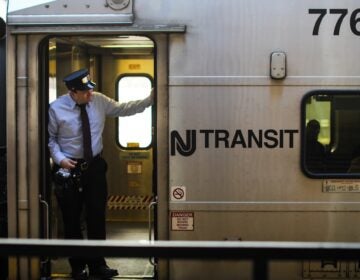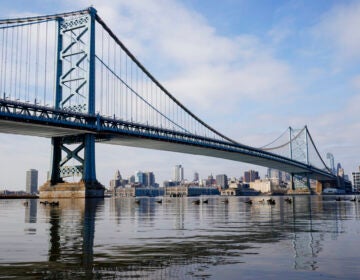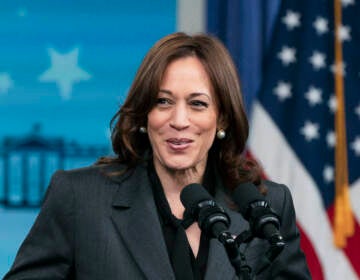UPenn students pressing alma mater for PILOTs to support Philly schools
ListenStudents at the University of Pennsylvania are pushing for the private institution to contribute more than $6 million to Philadelphia and its struggling public schools.
Like other nonprofits in the city, Penn only pays property taxes on a small portion of the land it owns. As a result, students argue the school should pay what are known as PILOTS, payments in lieu of taxes.
“Even though it’s a nonprofit institution, we have a $6.6 billion annual budget, we have a $9.3 billion endowment and at [Student Labor Action Project] we’re only asking for 0.1 percent of that to go to the city and to schools and essential services,” said senior Chloe Sigal, who, as a member of the Student Labor Action Project, participated in a “die in” during a Tuesday holiday party to raise awareness for the issue.
PILOTs are voluntary and cities with a high percentage of land exempt from property taxes often negotiate them to help pay for police, fire and other services. Penn hasn’t made PILOT payments in more than a decade — not since Ed Rendell was mayor.
Philadelphia Jobs with Justice has pushed for Penn to change that practice for the past two years. SLAP is part of the group’s effort, which now includes hundreds of petitioners in West Philadelphia.
“As an institution that takes public pride in its relationship with Philly and its schools, it really needs to step up and do more,” said Jobs with Justice’s Executive Director Gwen Snyder.
A Penn spokesperson said the school’s president Amy Gutman was not available for comment. The university has said it already pays out millions in other city taxes, such as the wage tax. It also has a partnership with the local public school Penn Alexander.
For now, there’s not a whole lot the city can do to encourage institutions like Penn to shell out. Under Pennsylvania’s Act 55, Rendell’s PILOTs program effectively became inactive.
In some cases, the city does have the option of threatening to challenge a nonprofit’s tax-exempt status, especially for buildings where for-profit ventures are housed, such as parking garages.
The city currently collects payments from 15-20 entities, according to Mayoral spokesman Mark McDonald. That adds up to roughly $300,000 a year he said.
WHYY is your source for fact-based, in-depth journalism and information. As a nonprofit organization, we rely on financial support from readers like you. Please give today.





